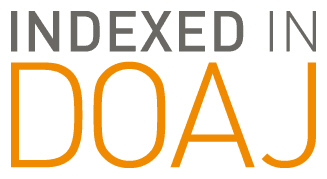Abstract
Mentoring, as an avenue to support and retain new teachers, has received a renewed interest. As Trubowitz suggests, “School systems are finding that beginning teachers who have access to intensive mentoring are less likely to leave teaching” (2004, p. 59). While several factors may cause teachers to leave, alienation has been identified as one of the major forces. According to previous research, teachers experience “a combination of feelings of isolation, normlessness, powerlessness, and meaninglessness” (Benham & O’Brien, 2002, p. 20). Such feelings of isolation are compounded by the current accountability demands and the professional pressure teachers’ experience. Thus, it is imperative to consider alternative strategies aimed at providing the kind of support congruent with beginning teacher’s needs in order to be successful (Breaux & Wong, 2003, p. iii). A goal of such strategies should be the effective socialization of teachers, and providing on-going support for growth, through different approaches including mentoring (Darling-Hammond, 2003; Brennan, Thames, & Roberts, 1999). Although mentoring can be an effective means to enhance teacher efficacy and help beginning teachers (Breaux & Wong, 2003; Delgado, 1999; Yost, 2002), limited research focuses on teachers’ perspectives associated with their own expectations of mentoring, particularly in diverse school settings (Wang & Odell, 2002). Further, researchers suggest, “There has been limited evidence that points to the expectations of new teachers relative to mentoring” (Tillman, 2005, p. 616). Thus, it is essential that teachers’ voices be illuminated to better understand their needs so that school leaders may “consider the benefits of consulting with novice teachers about their expectations in the mentoring arrangement” (Tillman, 2005, p. 626). Much of the current literature on teacher mentoring is based on experiences of mentors (Ganser, 1996; Trubowitz, 2004), and mentoring internship program descriptions (Brennan, Thames, & Roberts, 1999) however, novice teachers’ voices tend to be absent from the discourse. While few studies have focused on teachers’ perceptions (Rowley, 1999; Olebe, Jackson, & Danielson, 1999), additional research is needed so that beginning teachers’ voices contribute to a better understanding of mentoring as a vehicle to reduce isolation, successfully socialize new teachers into the demands of the profession, provide culturally responsive support to novice teachers, and reduce teacher turnover. Such inquiry could also be useful to avoid the common pitfalls that might have a detrimental effect on teachers and students. Therefore, the purpose of this paper is to present the results of a study conducted to examine teachers’ expectations of mentoring.
Recommended Citation
Garza, Rubén; Ovando, Martha N.; and Ramirez, Alfredo Jr.
(2018)
"Expectations of Mentoring: Novice Teachers’ Voices,"
School Leadership Review: Vol. 3:
Iss.
3, Article 3.
Available at:
https://scholarworks.sfasu.edu/slr/vol3/iss3/3
Tell us how this article helped you.


